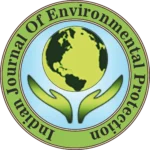IJEP 41(1): 66-71 : Vol. 41 Issue. 1 (January 2021)
Pradeep Kumar V. N., Gabriel Tonga Noweg* and Lau Seng
University Malaysia Sarawak, Institute of Biodiversity and Environmental Conservation, 94300 Kota Samarahan, Sarawak, Malaysia
Abstract
Desalination is a process that primarily involves cleanup and purification of sea water for drinking and irrigation purpose. The process is mainly targeted and widely used in the Gulf Cooperation Council country. To concentrate on waste management, it can be stated that it includes all those operations and activities that highly ensure to minimize the waste by adopting effective waste management tools, such as recycling and effectively reusing brine waste. In the current study, it identifies a perfect understanding of integrated waste management in the desalinization plant in UAE by analyzing the complete set of the research which includes the various techniques in desalination plant adopted in the UAE and also includes the improvement technique in the desalination process. The study also describes the environmental impact of seawater desalination and also examines the techniques to minimize the negative impact of the desalination plant on the environment. In accession to this, the section also describes the finding and discussion which is grounded on the existing literature which includes a summary of the literature by signifying the major concept. At last, the study also describes the summary of the reassessment that helps to make an effective recommendation for the UAE, so that they will be capable to accomplish the successful implementation of waste management effectively.
Keywords
Desalination, Techniques, Environment, UAE
References
- Dawoud, M. A and M.M. Al Mulla. 2012. Environmental impacts of seawater desalination: Arabian Gulf case study. Int. J. Env. Sustainability. 1(3):22-37.
- Khawaji, A. D., I.K. Kutubkhanah and J.M. Wie. 2008. Advances in seawater desalination technologies. Desalination. 221(1-3):47-69.
- Schenkeveld, M.M., et al. 2004. Seawater and brackish water desalination in the Middle East, North Africa and Central Asia: A review of key issues and experiences in six countries. Relatorio tecmico, Banco Mundial, Nimes, France.
- Sepúlveda, A., et al. 2010. A review of the environmental fate and effects of hazardous substances released from electrical and electronic equipments during recycling: Examples from China and India. Env. Impact Assess. Review. 30(1):28-41.
- De Nicola, E., et al. 2015. Climate change and water scarcity: The case of Saudi Arabia. Annals Global Health. 81(3):342-353.
- Tularam, G.A. and M. Ilahee. 2007. Environmental concerns of desalinating seawater using reverse osmosis. J. Env. Monitor., 9(8):805-813.
- USEPA. 1976. National pollutant discharge elimination system adjudicatory hearing proceedings: Decisions of the administrator and decisions of the general counsel (vol. 1). Office of General Counsel, US Environmental Protection Agency.
- Thiel, G. P., et al. 2017. Utilization of desalination brine for sodium hydroxide production: Technologies, engineering principles, recovery limits, and future directions. ACS Sustainable Chem. Eng., 5(12):11147–11162.
- Al-Hogaraty, E.A., Z.S. Rizk and H.K. Garamoon. 2008. Groundwater pollution of the quaternary aquifer in Northern United Arab Emirates. Water Air Soil Poll. 190(1-4):323-341.
- Ahmed, M., et al. 2001. Brine disposal from reverse osmosis desalination plants in Oman and the United Arab Emirates. Desalination. 133(2):135-147.
- Vanclay, F. and A.M. Esteves. 2011. New directions in social impact assessment: Conceptual and methodological advances. Edward Elgar Publishing.
- Stevenson, W.J., M. Hojati and J. Cao. 2007. Operations management (vol. 8). McGraw-Hill/Irwin, Boston.
- De Vito, C., et al. 2011. Reject brines from desalination as possible sources for environmental technologies. In Expanding issues in desalination. InTech. DOI: 10.5772/20302.
- Sgouridis, S., et al. 2016. RE-mapping the UAE’s energy transition: An economy-wide assessment of renewable energy options and their policy implications. Renewable Sustainable Energy Reviews. 55:1166-1180.
- Qiblawey, H.M. and F. Banat. 2008. Solar thermal desalination technologies. Desalination. 220(1-3):633-644.
- Pérez-González, A., et al. 2012. State of the art and review on the treatment technologies of water reverse osmosis concentrates. Water Res., 46(2):267-283.
- Kartam, N., et al. 2004. Environmental management of construction and demolition waste in Kuwait. Waste Manage., 24(10):1049-1059.
- Nair, M., and D. Kumar. 2013. Water desalination and challenges: The Middle East perspective: A review. Desalination Water Treatment. 51(10-12):2030-2040.
- Mezher, T., et al. 2011. Techno-economic assessment and environmental impacts of desalination technologies. Desalination. 266(1-3):263-273.
- Mahida, U.N. 1981. Water pollution and disposal of waste water on land. Tata McGraw-Hill, New Delhi.
- Lattemann, S. and T. Höpner. 2008. Environmental impact and impact assessment of seawater desalination. Desalination. 220(1-3):1-15.
- Islam, M.S. and M. Tanaka. 2004. Impacts of pollution on coastal and marine ecosystems including coastal and marine fisheries and approach for management: A review and synthesis. Marine Poll. Bulletin. 48(7-8):624-649.
- Elshorbagy, W. and A. Alkamali. 2005. Solid waste generation from oil and gas industries in United Arab Emirates. J. Hazard. Mater., 120(1-3):89-99.
- Giusti, L. 2009. A review of waste management practices and their impact on human health. Waste Manage., 29(8):2227-2239.
- Shatat, M., M. Worall and S. Riffat. 2013. Opportunities for solar water desalination worldwide. Sustainable Cities Society. 9:67-80.
- Mohamed, A.M.O., M. Maraqa and J. Al Handhaly. 2005. Impact of land disposal of reject brine from desalination plants on soil and groundwater. Desalination. 182(1-3):411-433.
- Khawaji, A. D., I.K. Kutubkhanah and J.M. Wie. 2008. Advances in seawater desalination technologies. Desalination. 221(1-3):47-69.
